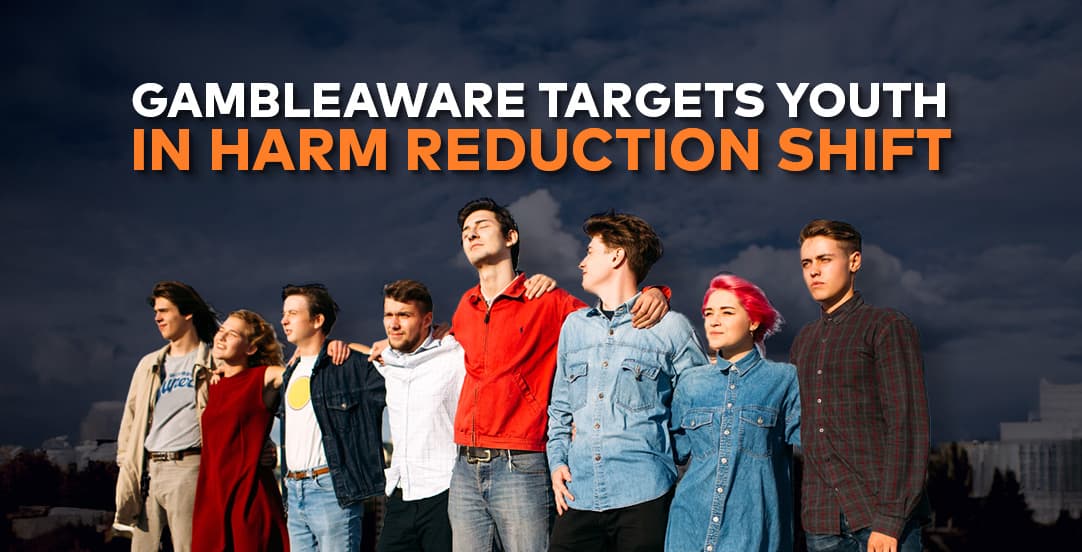GambleAware launches Support Tool app for young gamblers

GambleAware’s initiatives for young gamblers are making headlines in Great Britain, not only for targeting a key demographic but also for presenting a progressive model of digital harm reduction. These developments come at a crucial juncture for the iGaming sector, as the lines between entertainment and risk blur in the mobile era.
Understanding the landscape: Gambling’s appeal to young adults
The latest findings from GambleAware’s 2024 Treatment and Support Survey underscore a pressing trend. Nearly 29% of 18 to 24-year-olds who gamble express a desire to reduce or stop gambling—almost double the 15% average seen across all gamblers. This age group’s elevated willingness to change their behavior sheds light on how digital accessibility, shifting motivations, and broader public health concerns intersect within the iGaming ecosystem.
According to GambleAware’s Chief Communications Officer, Alexia Clifford, “the digital age means we essentially have a casino in our pocket.” With increased participation comes increased risk—a reality that calls for innovative support tailored to a tech-savvy population.
GambleAware Support Tool: A low-barrier digital intervention
Responding to this data, GambleAware has launched the GambleAware Support Tool, a free and anonymous mobile app designed to help individuals manage or reduce their gambling. The app is aimed squarely at users who prefer to self-manage their gambling habits rather than engage in formal treatment programs.
The Support Tool app functions on several key pillars: tracking gambling frequency and spend, allowing users to set personal goals, and delivering educational content through podcasts and articles. Notably, the app also signposts users to professional support if they wish to seek additional help, aligning with best practices in responsible gambling.
One of the distinctive aspects of this app is its promotion of the Lower Risk Gambling Guidelines (LRGG), which are based on international research involving over 60,000 participants across eight countries. These guidelines set three essential benchmarks: gamble no more than 1% of your monthly income, limit gambling to four days per month, and avoid engaging in more than two different forms of gambling. The app encourages users to adopt these principles as practical boundaries for minimizing potential harm.
Youth motivations: Money, mental health, and independence
GambleAware’s internal research since the app’s launch in April 2025 provides granular details about the priorities of young adults who turn to digital self-help. Among 18 to 24-year-olds using the app, 48% cite saving money as their main driver for cutting back, while 27% are primarily motivated by the aspiration to “feel happier.” These findings suggest that budget consciousness and mental well-being are driving increased demand for accessible, informal support mechanisms.
This preference for informal assistance is not limited to young people. The 2023 Audience Segmentation report estimated that roughly 4.5 million people in Great Britain want to reduce or quit gambling, and strikingly, over 90% would rather do so without entering formal treatment. Tools like the GambleAware Support Tool thus fill a crucial gap, offering a pathway to recovery that many find more approachable, private, and adaptable.
Voices of experience: Control and choice in recovery
Feedback from users reveals the psychological impact of the app’s self-monitoring capabilities. Catherine Adams, a member of GambleAware’s Lived Experience Council, illustrates how the tool provided her with a sense of control during her own recovery. Setting and tracking goals, monitoring days without gambling, and seeing financial progress can offer tangible encouragement for those seeking change.
“It’s positive being able to monitor your progress yourself and to see how well you’re doing in reducing or quitting your gambling if you’re goal orientated,” Adams shares. “To see ‘I’ve done this many days now’ or ‘I’ve saved this much money, I think it really does give variety of choice in your recovery.”
For a generation that values autonomy and digital convenience, these aspects resonate strongly. Apps like the GambleAware Support Tool support users’ journeys with minimal friction, meeting people where they are most comfortable, on their mobile devices.
Broader public health context and calls for consistent standards
Alongside individual empowerment, there is a growing recognition of gambling as a public health issue. Recent calls for improved harm visibility, such as clearer signposting from the National Lottery, reflect mounting societal pressure for greater transparency and consistency across all gambling formats. GambleAware’s surveys found that 74% of the public want the National Lottery to clearly indicate where help can be found.
The charity’s research also highlights increased vulnerability among neurodivergent individuals, such as those with ADHD or autism. These findings push the iGaming industry and public health agencies to consider a spectrum of risk factors and to create safer gaming environments for all user profiles.
Why these developments matter for the iGaming industry and society
The launch of the GambleAware Support Tool signals a shift in how harm reduction and responsible play are approached in Great Britain. The success of this initiative highlights three vital trends: first, that early, low-barrier intervention can meet a significant unmet need, second, that technology and evidence-based recommendations empower consumers to make healthier choices, and third, that broader cultural momentum is building to treat gambling risks as part of the public health conversation, not merely as matters of personal responsibility.
For operators, regulators, and technology providers, the onus is now on creating environments and tools that proactively support player wellbeing—rather than waiting until harm has occurred. As digital gambling continues to expand, responsible innovation is not just a regulatory mandate but a core component of building trust, loyalty, and sustainable industry growth.
Key takeaways for industry professionals and the public
- Young adults are driving demand for accessible, technology-enabled support solutions,
- initiatives like the GambleAware Support Tool demonstrate how self-guided, evidence-based interventions can bridge the gap between casual play and at-risk behavior,
- aligning product design, public messaging, and regulatory standards will be essential in shaping the future of responsible gambling.
GambleAware’s approach stands as a case study in how melding public health frameworks with digital engagement can benefit both the iGaming industry and society at large. Whether as a first step for those uncertain about seeking help, or a long-term companion for those pursuing happier, healthier lives, such practical tools mark an important evolution in the landscape of digital entertainment and harm prevention.





















